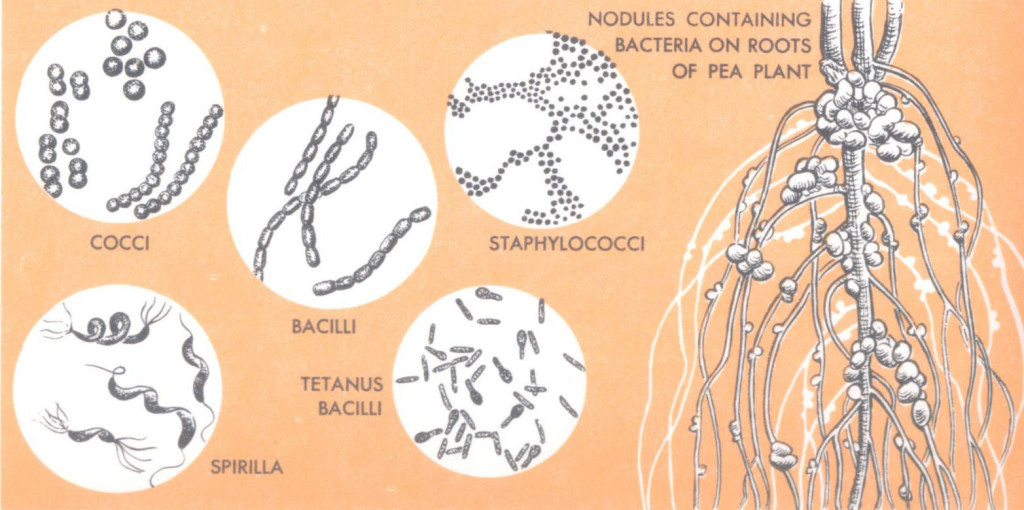50.WHAT ARE BACTERIA?
Man’s relationship to bacteria is a very interesting one. We all know that many bacteria are harmful. Diseases such as typhoid fever, cholera, diphtheria, pneumonia, and all infections that occur in open wounds are each caused by a particular kind of bacteria. So man wages war on these bacteria.
Yet, without the action of other types of bacteria, life would be impossible on earth! In fact, man actually cultivates certain bacteria because he needs and uses them.
Bacteria are usually considered the lowest members of the plant kingdom. Each bacterium is a single bit of living matter without a nucleus. They average about 0.001 millimeters in diameter. Some are so small they can’t even be seen under an ordinary microscope.
Bacteria are usually found in one of three shapes: They are the ball-shaped cocci; the rod-shaped bacilli; or the corkscrew-shaped spirilla. They reproduce by simply splitting in two. Under favorable conditions, they increase at a very rapid rate. Luckily, nature has several ways of checking this increase. Otherwise, bacteria would soon cover the entire earth.
The bacteria that brings about the decay of dead plants and animals are very useful to man. Not only do they destroy dead tissues and break them down into the simple compounds out of which they were made, but without decay bacteria, the earth would become so cluttered with useless dead matter that there would be no room for living things.
Certain other bacteria are useful by causing fermentation. The souring of milk and of sweet fruit juices are the most familiar kinds of fermentation caused by bacteria. Various industrial processes owe a great deal to this fermenting action of bacteria. The ripening of cream, which flavors good butter, is due to bacterial fermentation. Many of the finer cheeses owe their flavors, at least in part, to bacterial products.
And as we know, plants could not live without the bacteria that combine nitrogen with other elements to make nitrates which plants can use.



Leave a Reply